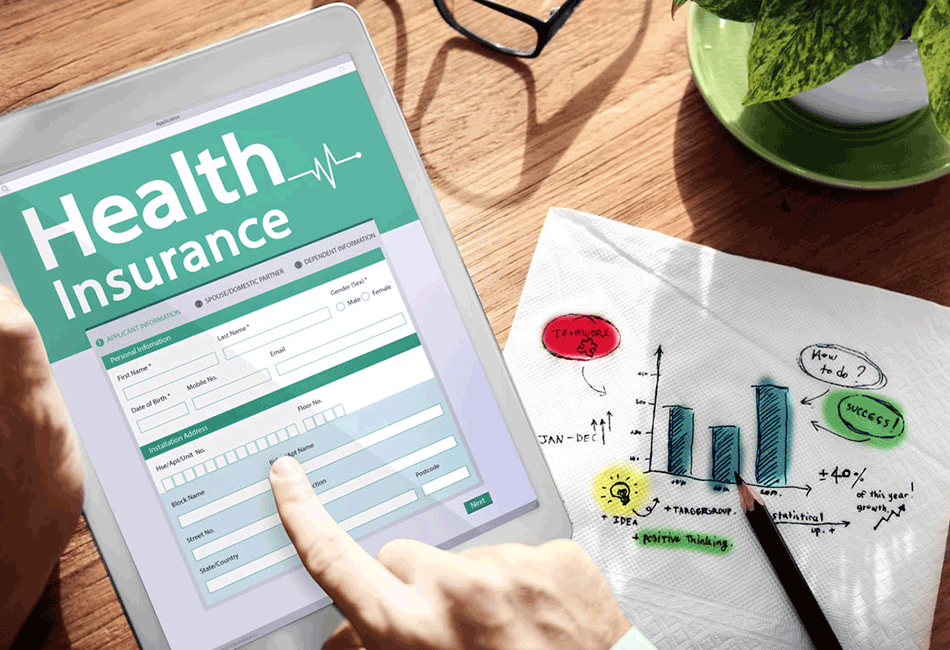
Medical charges or hospital bills for health emergencies are unforeseen, occurring anytime and anywhere, and might lead to financial crises. In such cases, health insurances that work to provide financial coverage to people is one’s best option at any time.
However, in countries such as India, many people, even today, have no health insurance. They either meet their expenses through their limited savings or rely on borrowing money. Therefore, to prevent such carelessness, Section 80D deduction of Income Tax was introduced.
Section 80D of the Income Tax Act- What is it?
Section 80D deduction of the Income Tax,1961, was introduced to encourage more people to have health insurance and also with a collective goal to promote health planning in the country, Through it, taxpayers, individuals or HUF can seek a deduction for the medical expenses that they might have incurred and simultaneously enjoy tax benefits under health insurance premiums, subject to the maximum limit specified after getting Abha Card.
Section 80D offers a deduction for expenditure on the following plans:
- Medical Insurance Premium
- Contribution to CGHS (Central Govt Health Scheme)/ other notified Schemes
- Prevention Health Check-ups
- Medical expenditure (involving senior citizens)
Eligibility Criteria to avail deduction under Section 80D
- Individuals, and
- Hindu Undivided Family (HUFs)
Individuals or HUFs can claim a deduction for:
- Self
- Spouse
- Parents
- Dependent Children
However, other than them, no other entity, such as a company, organisation or firm, cannot claim the deductions and benefits provided under Section 80D.
Maximum Deduction Offered Under Section 80D
Section 80D specifically proves beneficial when one has medical insurance and also wishes to maximize tax savings. However, there might still be a few things that one should be aware of when trying to seek the benefits, for instance, the amount of deduction allowed for various premiums. Even the fact that to seek such a deduction, the premium is to be paid in any mode other than cash.
However, the costs for preventive health check-ups can be covered through cash. The deduction for the various premiums allowed under section 80 D vary and are as follows: –
-
Medical Insurance Premium: For self and family
- The maximum deduction amount taken for oneself or one’s family (including their spouse or children) is Rs.25,000
- When a medical emergency concerns an individual who is himself/herself a senior citizen or anyone in their family who is a senior citizen aged 60 years and above, the deduction amount in such cases will be Rs.50,000
-
Medical Insurance Premium: For Parents
- For one’s parents as well, an individual can utilize the deduction of the medical insurance premium paid under Section 80D
- The maximum amount of deduction is 25,000 and 50,000 only when one’s parents are senior citizens.
However, for 80D, parents include only the father and mother (dependent or otherwise) and not the mother-in-law or father-in-law.
-
Prevention Health Check-up
- Preventive Health Check-ups involve detecting a potential illness at an early stage and preventing it from becoming serious through comprehensive periodic examinations conducted either by one’s personal physician or any general practitioner.
- The government made available the deduction for Prevention Health Check-ups to lead its people to be more responsible about their health and well being.
- However, the cumulative deduction amount for Prevention Health Check-ups is comparatively low. It is a maximum amount of Rs.5000/- for an individual, their parents or family.
-
Deduction of Health expenses on Senior Citizens ( Aged 60 or more)
For the welfare of senior citizens maximum deduction amount of Rs.50,000/-is offered under Section 80D. However, only when no medical Insurance is paid for the senior citizen is the expenditure incurred allowed to be deducted.
-
Contribution to CGHS/Notified Scheme
Excluding one’s parents, contributions to certain Central Govt Health Schemes (CGHS) or any such notified schemes are made available for individuals both for themselves and their families for a maximum deduct amount of Rs.25,000.
The Bottom Line
The deductions provided by the government under Section 80D of Income Tax thus can result in a great deal of tax savings for taxpayers. In any case, it is better to be late than sorry, as medical emergencies can occur unannounced and lead to a potential financial crisis. Thus, it is important that health insurance shouldn’t be compromised by individuals.
Interesting Related Article: “8 Questions to Ask About Family Health Insurance Quotes“

